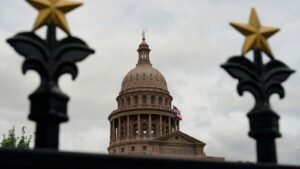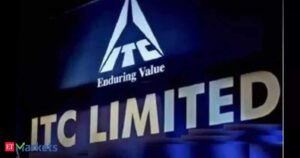Is China’s E.V. Business a Risk to the U.S.?

After President Joe Biden introduced final month that he was quadrupling the tariffs on Chinese language electrical autos, which are usually less expensive than E.V.s offered on this nation, he bumped into expenses that he was undercutting his environmental commitments. The Democratic governor of Colorado, Jared Polis, known as the choice “horrible information for American customers and a significant setback for clear vitality.” Robert Lawrence, a commerce skilled at Harvard’s Kennedy College, advised The Hill, “What Biden has completed is to underscore that he prefers commerce protectionism to decarbonizing the financial system.”
In a latest dialog with me, Heather Boushey, a member of the White Home Council of Financial Advisers, insisted that the brand new coverage measures had been per the Biden Administration’s local weather objectives, which embrace reducing emissions within the energy sector to zero by 2035 and creating a wholly emissions-neutral financial system by 2050. To fulfill these targets, the Administration has launched a variety of insurance policies on E.V.s, which embrace extending tax credit to individuals who buy them, giving subsidies to automakers that construct them, and now, considerably counterintuitively, elevating tariffs on Chinese language E.V.s and batteries. “That is an industrial technique, however additionally it is concerning the local weather,” Boushey mentioned. “That is about build up a home {industry} and applied sciences which are key to the clean-energy future.” She identified that China had established a “choke maintain” on some vital elements, corresponding to graphite, used for E.V. batteries. “From a coverage perspective, it is mindless to cede management of those important industries,” she mentioned.
The timing of the brand new tariffs can’t be divorced from the upcoming election and from Biden’s dedication to point out voters in battleground states that he’s standing as much as China and defending U.S. jobs. In a name with reporters, Lael Brainard, one of many President’s high financial aides, mentioned, “We all know China’s unfair practices have harmed communities in Michigan and Pennsylvania and across the nation.” However one other issue that certainly performed into the announcement is the exceptional progress of Chinese language E.V. makers, significantly BYD Auto, which is now promoting low-cost E.V.s in Europe, Southeast Asia, and Latin America, in addition to in its house market. In Mexico, for instance, the zippy BYD Dolphin Mini hatchback prices roughly the equal of twenty-one thousand U.S. {dollars}. With Basic Motors having halted the manufacturing of the Chevy Bolt, the most affordable E.V. available in the USA is the Nissan Leaf, which begins at round twenty-eight thousand {dollars}, and has a shorter vary than the BYD mannequin. Right here, the common price of an E.V. is fifty-five thousand {dollars}, and the most affordable mannequin from Tesla, which nonetheless accounts for greater than half of the nation’s E.V. gross sales, begins at about forty thousand {dollars}.
BYD doesn’t promote any vehicles in the USA but and says it has no plans to take action. (Earlier this 12 months, it mentioned it was scouting areas for a plant in Mexico, however solely to provide the Mexican market.) Nonetheless, the prospect of low-cost Chinese language E.V.s flooding the U.S. has alarmed American officers and automakers, that are lastly making substantial investments in a transitioning away from internal-combustion engines. “I believe that everyone was stunned by how briskly BYD obtained to be so good,” Susan Helper, an economist at Case Western Reserve College who served within the Biden Administration till earlier this 12 months, advised me. Different Chinese language E.V. producers, together with Nio and Xpeng, have indicated an curiosity in promoting their vehicles in the USA. In February, the Alliance for American Manufacturing, a commerce group, warned that the arrival of low-cost Chinese language E.V.s might be an “extinction-level occasion” for U.S. automakers.
On condition that some protectionists in Congress have been calling for a whole ban on Chinese language E.V.s, and Donald Trump has vowed to impose even greater tariffs on Chinese language items than Biden has, it appears extraordinarily unlikely that Individuals will be capable of purchase low-cost Chinese language E.V.s anytime quickly. That makes it much more crucial that the home transition to producing E.V.s proceeds, and does so quickly. It appears value discovering out whether or not we will study one thing from China, which constructed an E.V. {industry} virtually from scratch.
A part of Chinese language E.V. firms’ success will be attributed to decrease wages, along with lax labor and environmental requirements. We actually wouldn’t wish to mimic any of that. There are not any impartial labor unions in China, and the common manufacturing wage is equal to about ten thousand U.S. {dollars} a 12 months, together with additional time pay. There’s additionally proof that pressured labor, involving Uyghur employees, has been utilized in elements of the Chinese language provide chain for lithium-ion batteries. Nevertheless, labor prices make up a comparatively small a part of complete car-production bills—lower than twenty per cent, in lots of circumstances. Chinese language E.V. producers have additionally made important advances in design and manufacturing, typically by taking applied sciences and processes that had been invented elsewhere and enhancing them. “Numerous Chinese language automobile firms, their large success has are available in studying by doing,” Ilaria Mazzocco, an skilled on China’s industrial coverage on the Middle for Strategic and Worldwide Research, in Washington, D.C., advised me. “By innovating in manufacturing strategies, they’ve been in a position to cut back prices, after which reinvest capital in analysis and improvement.” Kyle Chan, a Princeton researcher who writes on industrial coverage and clean-energy expertise, pointed to a few areas the place Chinese language E.V. makers have made spectacular progress: growing lithium-ion batteries, casting aluminum automobile frames, and utilizing pc simulations within the design course of.
Undoubtedly, the Chinese language authorities has performed a significant function in selling the {industry}, too. Its help is available in many varieties, together with some ways which are getting used on this nation: subsidies for E.V. makers; tax breaks for E.V. purchases; directives on electrification and emissions discount; and assist from native governments, which have given E.V. makers low-cost land, tax reduction, and even, in some circumstances, monetary bailouts. In regard to those insurance policies, one appreciable distinction between China and the USA is scale. “China’s industrial coverage spending is gigantic, totaling at the very least 1.73 p.c of GDP in 2019,” in response to a brand new report by Mazzocco and two of her colleagues at C.S.I.S. “In greenback phrases, China spends greater than twice as a lot as the USA.”
One message from this report appears to be you can’t do efficient industrial coverage on a budget. Three different features of China’s method additionally bear shut inspection. The primary one is persistence. Within the U.S., industrial insurance policies have a tendency to alter every time a brand new get together involves energy, or every time a beneficiary suffers a monetary setback, such because the 2011 chapter of Solyndra, a California solar-panel maker that had obtained greater than 5 hundred million {dollars} in mortgage ensures from the Division of Power. After Solyndra’s collapse, the Obama Administration didn’t abandon its clean-energy subsidies, however officers tightened mortgage necessities and have become extra cautious about extending them. This doesn’t occur in China. “You see a doubling down when the {industry} goes via a tough patch,” Chan mentioned. “From a market perspective, the very last thing you wish to do is make investments right into a failing market. They’ve completed that fairly a couple of instances.” The solar-panel {industry} is an effective instance. After the ruinous value struggle that harm Solyndra and different producers, the Chinese language authorities continued to help its home {industry}, and Chinese language companies now dominate it globally.
One other noteworthy function of Chinese language coverage is that, relatively than favoring incumbents, it has inspired new entrants and manic competitors. There are greater than 100 E.V. makers in China, and that’s down from about 5 hundred in 2019. In such a crowded market, companies have been pressured to chop prices and costs, which has benefitted customers and boosted gross sales. Earlier this 12 months, BYD launched a brand new mannequin that sells for ten thousand {dollars}. In the USA, Tesla largely had the E.V. market to itself for a decade or so, because the Massive Three focussed on gas-guzzling S.U.V.s and pickup vehicles. (This technique generated giant income for the normal carmakers however left them far behind Tesla and Chinese language firms in growing E.V.s.) “It’s not pure central planning,” Helper mentioned, of the Chinese language method. “There’s a market take a look at ultimately. They seed a complete bunch of firms, and just a few survive. The precept of mixing planning and competitors is one thing we will study from.”
A 3rd facet of Chinese language policymaking that the U.S. ought to pay attention to is its flexibility. Over time, China has tried a little bit of all the pieces, together with encouraging native companies to associate with overseas firms. The specialists I spoke with mentioned that the U.S. ought to emulate this method by permitting American automakers to group up with Chinese language companies which have industry-leading expertise. “When you construct one thing in ten years that the Chinese language can construct tomorrow, the query is: at what price?” Mazzocco mentioned. “I perceive, there is a component of reinventing the wheel that needs to be completed, however there additionally must be a steadiness.”
A few American carmakers—Ford and Tesla—have already introduced plans to associate with Chinese language firms, however they’ve run into political opposition. After Ford introduced that it was constructing a brand new lithium-ion-battery plant in Michigan utilizing expertise licensed from CATL, a number one Chinese language battery maker, Republican politicians objected and Ford put its plans on maintain. (It’s now going forward with a scaled-down model of the plant.) Helper mentioned that Ford’s partnership with CATL was a “wise approach to proceed” so long as it has a “good settlement and the Chinese language will reveal the key sauce.” She additionally mentioned she wouldn’t be in opposition to ultimately permitting BYD and different Chinese language firms to construct U.S. crops so long as they pay U.S. market wages and meet U.S. requirements in different areas, together with the sourcing of elements.
Chan identified that there’s a historic precedent for this sort of association: the remedy of Japanese automakers within the nineteen-eighties. Again then, there have been comparable issues about low-cost, fuel-efficient vehicles from Toyota and Honda flooding the U.S. market and destroying the Massive Three. The Reagan Administration restricted imported autos, however ultimately allowed the Japanese firms to construct crops in the USA. American carmakers copied a few of their strategies. “The U.S. automakers had been in a position to study and enhance,” Chan mentioned, and he added that we must always undertake an analogous method with Chinese language automobile firms.
Given the present local weather, through which virtually something to do with China is extremely politicized, such an end result appears unlikely. Judging by polls, many Individuals agree with the concept of defending essential U.S. industries from Chinese language competitors and think about China’s financial improvement as extra of a risk than a possibility. For now, it seems to be like Individuals looking for an inexpensive E.V. must accept a Nissan Leaf or anticipate Tesla to construct its long-awaited mass-market Mannequin 2 or for one of many new ventures to bear fruit. ♦





